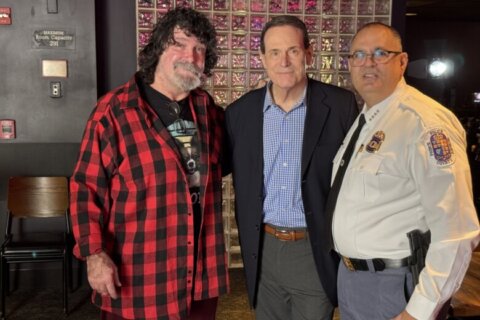LAUREL, Md. — As part of Black History Month, there’s a focus on the ways African Americans have influenced the country and the world, and a panel on Saturday delved into how the migration of large numbers of black folks from the south to north helped spark a cultural shift.
There were forces pushing black people to the North including “the adverse conditions in the South, discrimination, terrorism often in the form of lynching,” said historian, teacher and panelist Hassan Adeeb.
Adeeb said brighter employment prospects also beckoned African Americans to large northern and western cities in search of a better life.
Saturday’s discussion at the Montpelier Arts Center in Laurel was part of a free series of events on the Great Migration being presented throughout Prince George’s County, in partnership with the Coalition for African Americans in the Performing Arts. It also highlighted the effects of these push-pull forces that influenced the Great Migration, including the effect of music during that time.
Today’s panel at the Montpelier Arts Center, Laurel was part of a free series about the Great Migration that’s being presented throughout Prince George’s County. Today–’twas about the impact of music during Great Migration– Including D.C. ties to Harlem Renaissance. @WTOP pic.twitter.com/1O5xW1fcRy
— Liz Anderson (@PlanetNoun) February 3, 2019
Some of those effects include the social, intellectual and artistic boom among African Americans known as The Harlem Renaissance. But there’s a local twist to that movement, which was known as the “New Negro Movement.” The term was coined by Alain LeRoy Locke, a teacher and writer who spent more than 40 years at Howard University.
Even though it’s widely known as a Harlem movement, a local historian says D.C.’s musical influence is also felt in that renaissance and celebration of black history, intellectualism, literature and music.
“Half of our greats out of Howard and Shaw in the U Street corridor, they go up to Harlem, they make big money, they do really well up there,” said historian and panelist Bernard Demczuk. “So I would like to suggest that before there was Harlem, there was D.C., and before there was The Apollo, there was there was The Howard Theater.”







